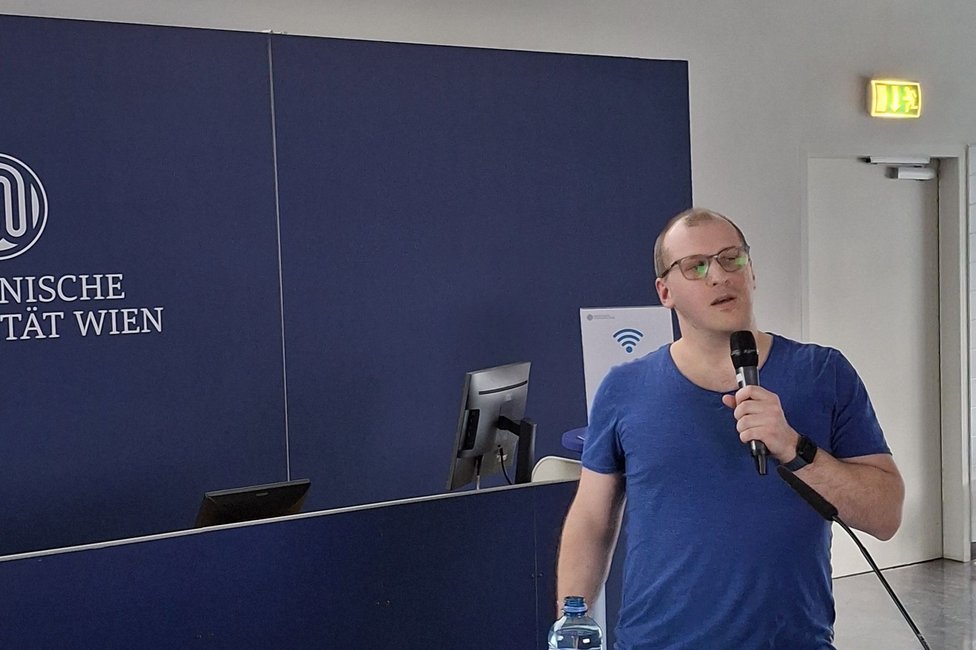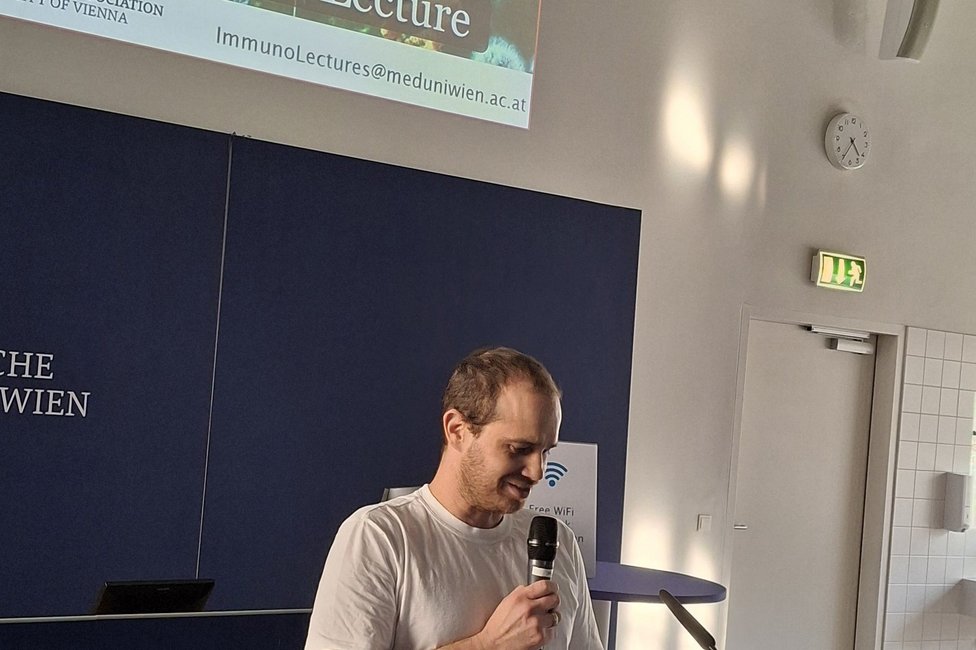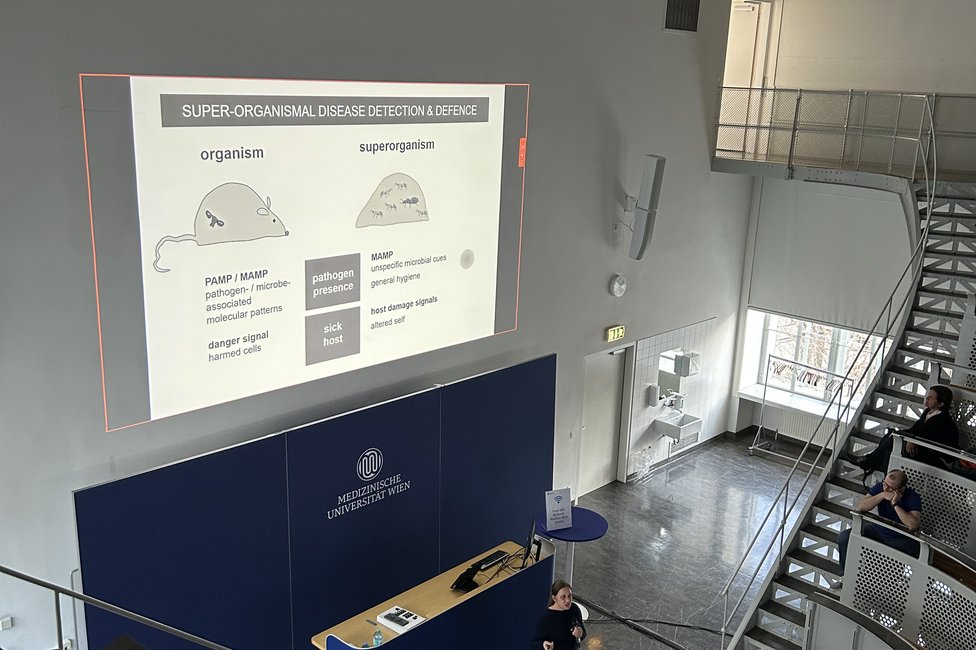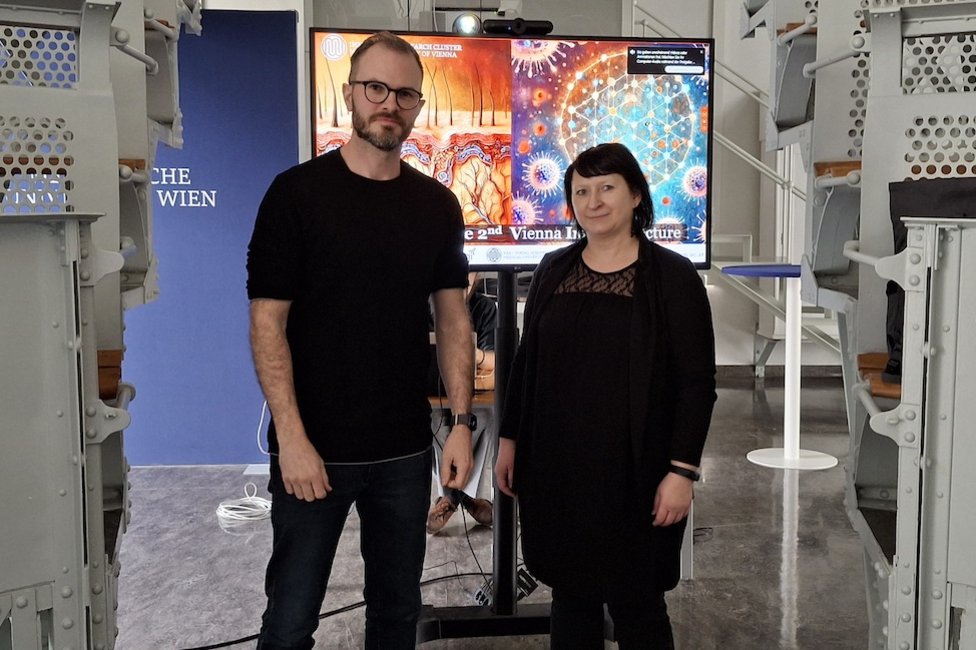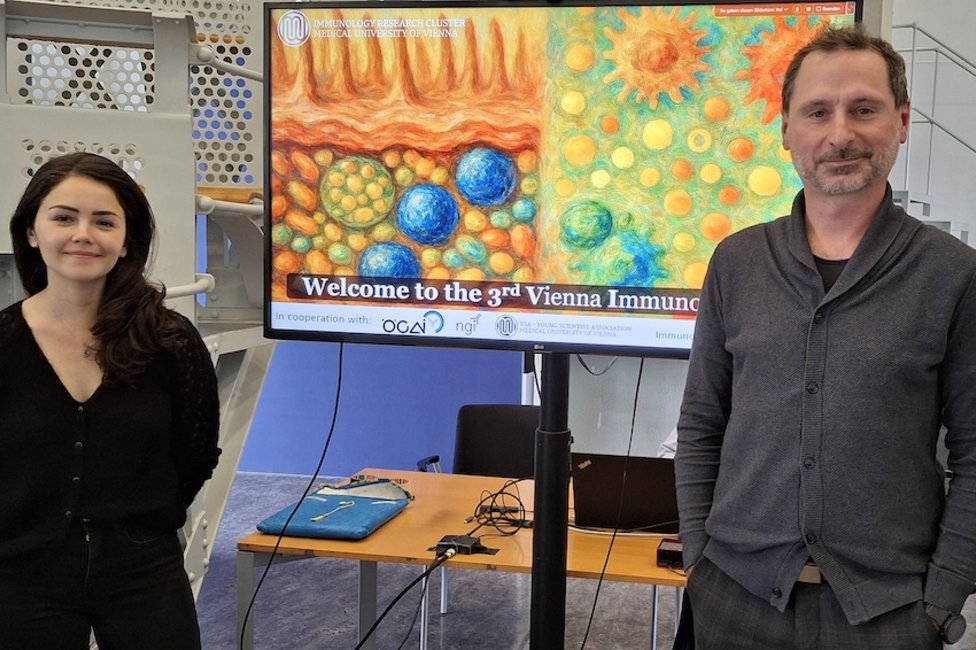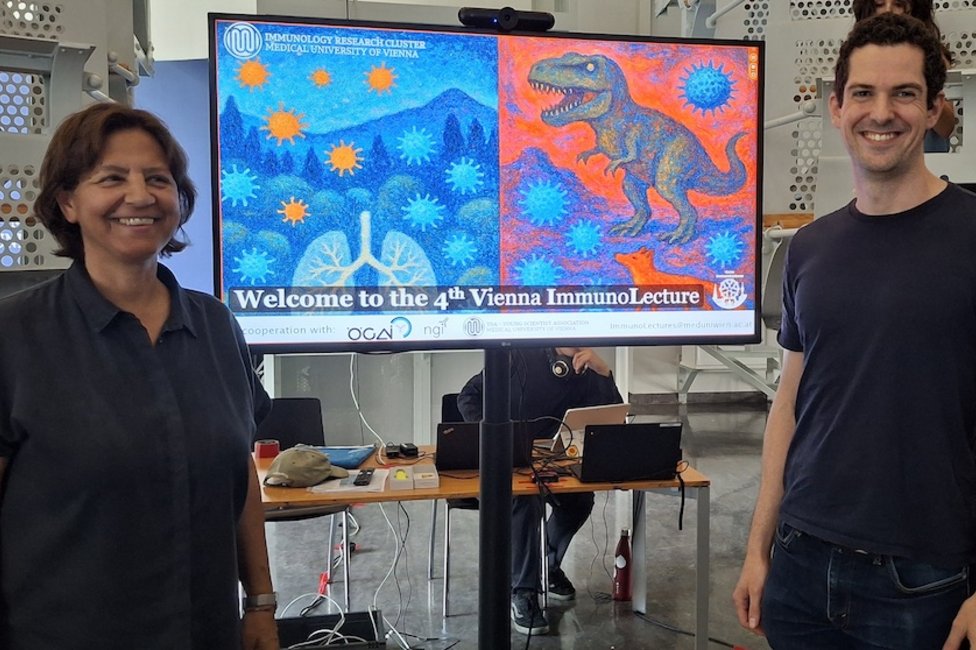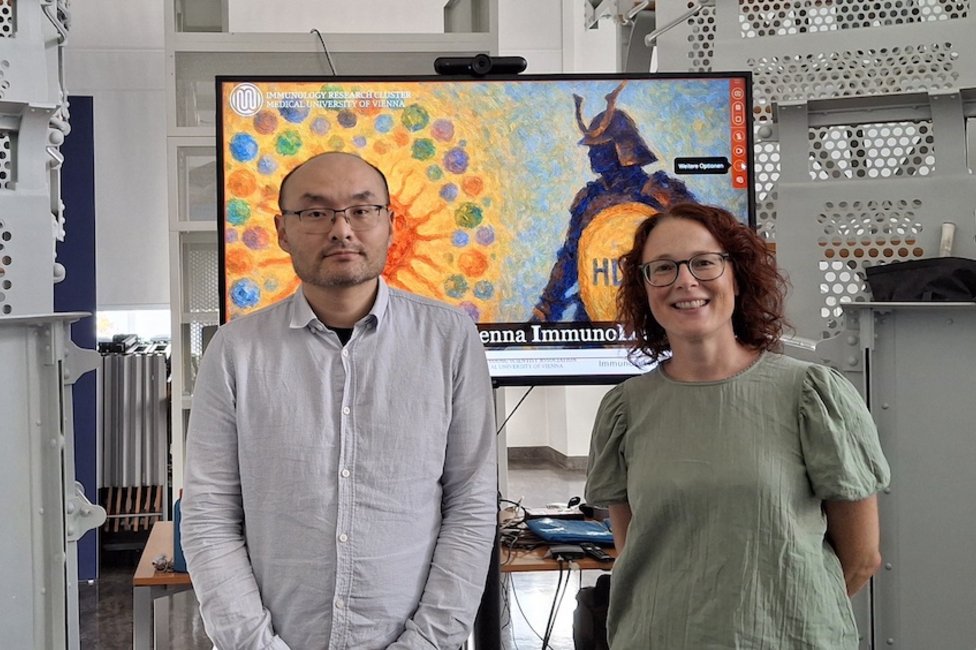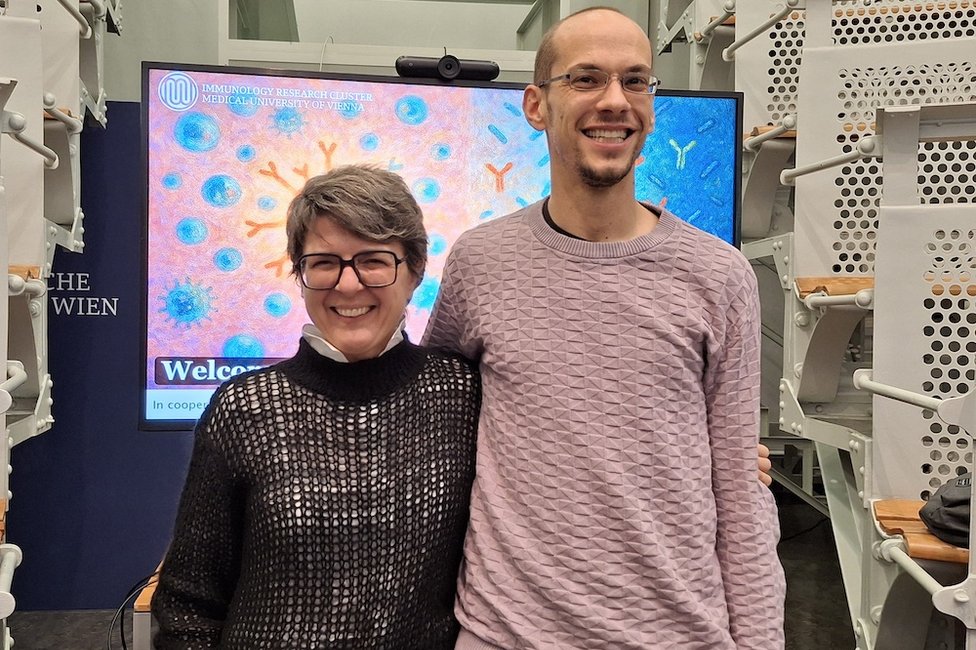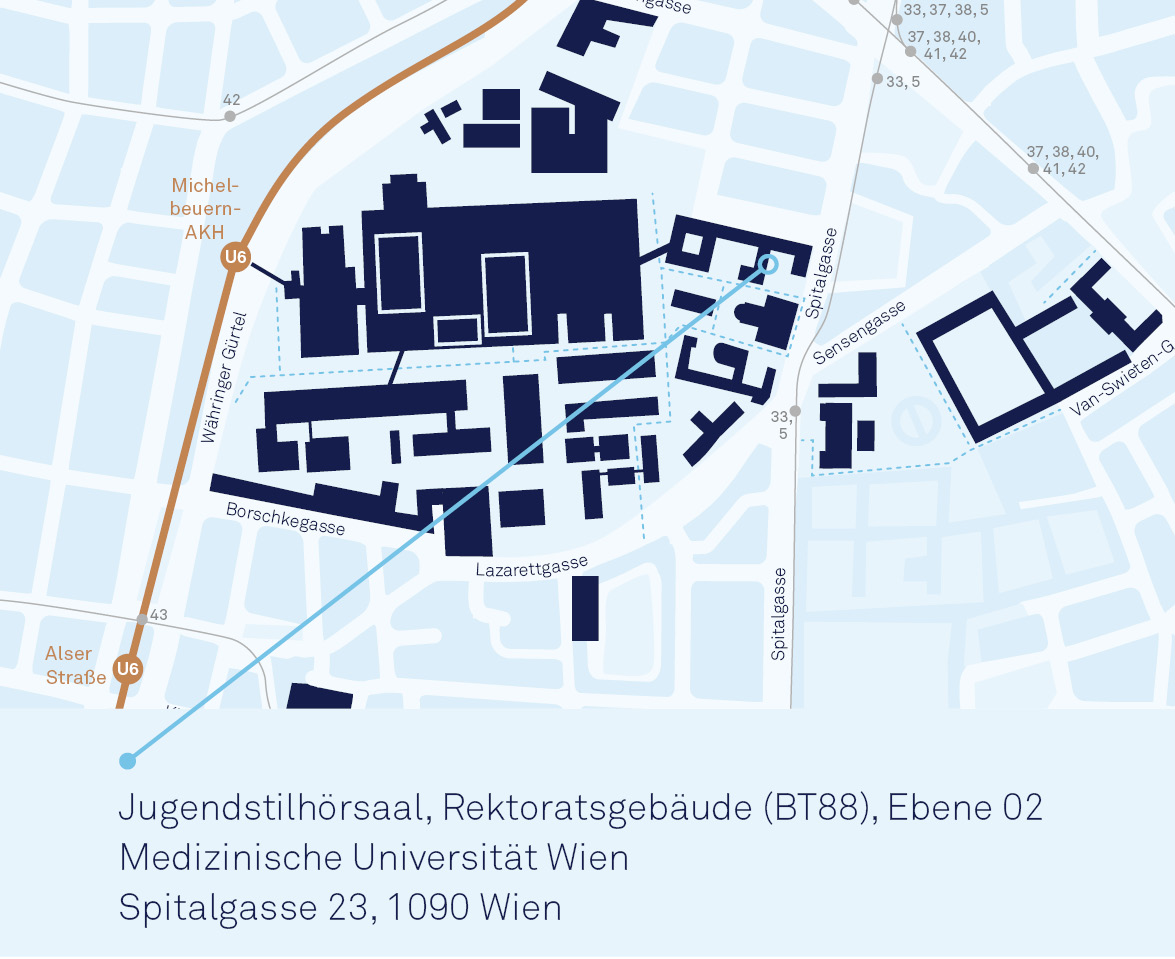Die Vienna ImmunoLectures (VIL) sind eine Vortragsreihe, die zirka einmal pro Monat im Jugendstilhörsaal der Medizinischen Universität Wien stattfinden und vom Immunology Research Cluster (IRC), der Young Scientist Association (YSA) sowie den Next Generation Immunologists der Österreichischen Gesellschaft für Allergologie und Immunologie (ÖGAI) unterstützt werden.
Zwei herausragende Immunolog:innen aus Österreich (und auch darüber hinaus) stellen in Vorträgen ihre Forschung vor. Die Vortragsserie wird als „hybrid-meeting“ abgehalten und soll Immunolog:innen in Österreich eine Plattform bieten, um ihre Forschung vorzustellen und sich mit anderen Forscher:innen zu vernetzen. Vor den Vorträgen gibt es die Möglichkeit von persönlichen Treffen mit den Sprecher:innen für Student:innen und Forscher:innen (Anmeldung erforderlich). Ein entspanntes „Get Together“ wird anschließend an die Vorträge Möglichkeiten zur Interaktion und für anregende Diskussionen bieten.
Wir freuen uns auf eine zahlreiche Teilnahme.
Dear colleagues,
The Vienna ImmunoLectures will pause during the winter season and resume in March 2026. The organizing committee extends its sincere thanks to all speakers for their outstanding contributions throughout the year and wishes everyone a joyful holiday season and a successful start to the new year. More information will follow in January 2026.
We would be very happy to hear from you (at ImmunoLectures@meduniwien.ac.at) in case you would like to be part of the organizing committee!
Kind regards,
Taras Baranovsky (MedUni Wien, Young Scientist Association)
Nicole Boucheron (MedUni Wien)
Bihua Chen (MedUni Wien)
Anja Obrenkovic (Uni Wien)
Lisabeth Pimenov-Reifeltshammer (MedUni Wien, Next Generation Immunologists)
Katarina Repiska (MedUni Wien, Next Generation Immunologists)
Piyal Saha (MedUni Wien Young Scientist Association)
Philipp Starkl (MedUni Wien)
Mitarbeiter:innen der MedUni Wien, die für unsere Veranstaltung eine Überbrückung im Fall eines Betreuungsengpasses ihrer Kinder benötigen, können kostenfrei eine flexible Kurzzeitbetreuung beanspruchen.
Bitte melden Sie Ihren Bedarf an der Kurzzeitbetreuung online (2 Werktage vor Inanspruchnahme) über folgende Website an:
Wir danken den Referent:innen und Teilnehmer:innen für die gelungenen Veranstaltungen.
Kontakt
Nicole Boucheron
Zentrum für Pathophysiologie, Infektiologie und Immunologie
Institut für Immunologie
Lazarettgasse 19, 1090 Wien
Tel: 01 40160 33297
ImmunoLectures@meduniwien.ac.at
Das VIL Organisationskomitee
- Taras Baranovsky (MedUni Wien, Young Scientist Association)
- Nicole Boucheron (MedUni Wien)
- Lisabeth Pimenov-Reifeltshammer (MedUni Wien, Next Generation Immunologists)
- Katarina Repiska (MedUni Wien, Next Generation Immunologists)
- Piyal Saha (MedUni Wien Young Scientist Association)
- Philipp Starkl (MedUni Wien)


